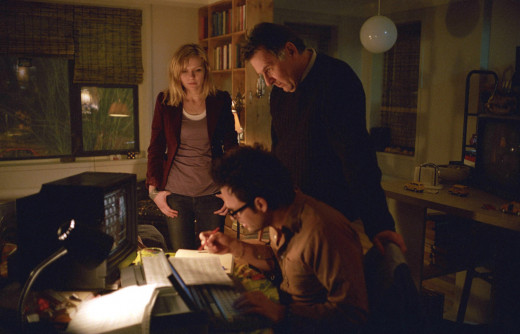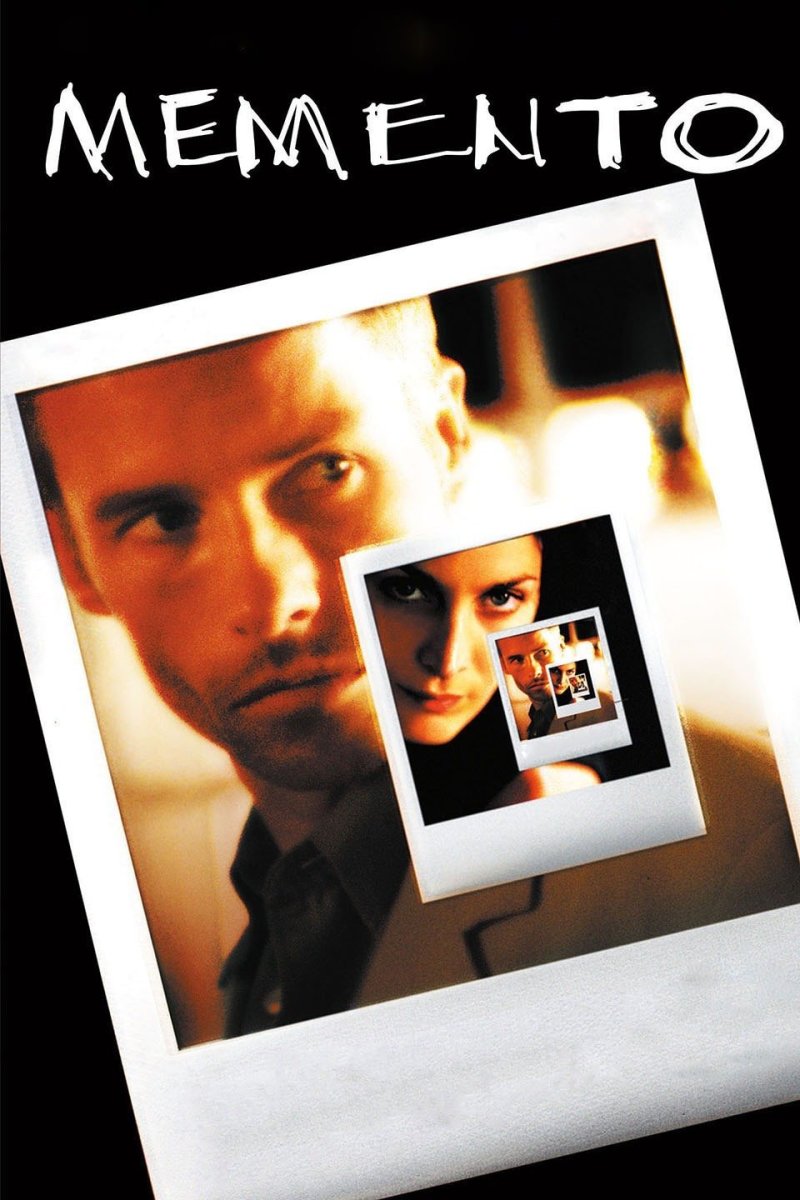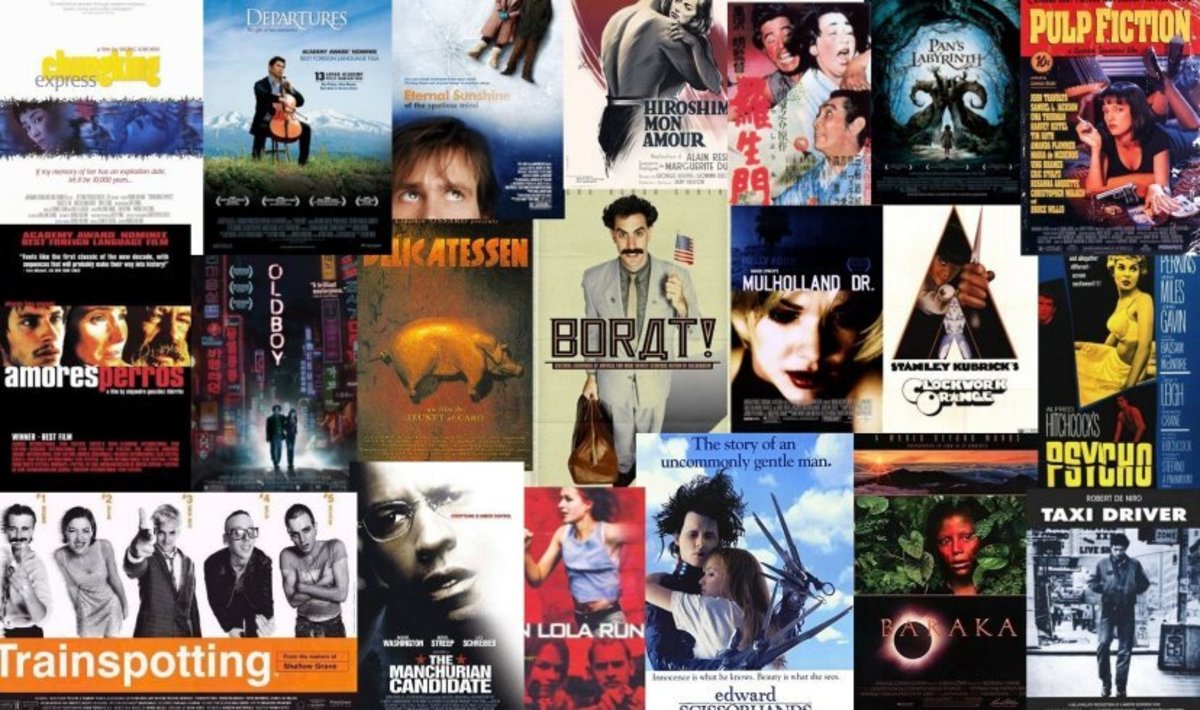Review: Eternal Sunshine of the Spotless Mind (2004)
If you could erase your worst and most traumatic memories or even people from your mind would you be better off? To what extent do our negative experiences shape us, enhance us and change us? Are our darkest, most lonely and saddest moments integral parts of the identity of our souls? Famed screenwriter Charlie Kaufman and unorthodox director Michel Gondry explored this in 2004 with Eternal Sunshine of the Spotless Mind; a quasi-sci-fi/comedy drama starring Jim Carrey and Kate Winslet as Joel Barish and Clementine Kruczynski respectfully, a pair of flawed and lonely singletons who erase their memories of their tumultuous relationship.
Meet me in Montauk

"I had the best f****** night of my entire f****** life" Joel exclaims to a smiling Clementine - a woman whose blunt, often coarse vocabulary and free-spirited nature is rubbing off on a man once so shy he could barely even utter a hello. 'Eternal Sunshine of the Spotless Mind' is, in many respects, a love story played in reverse, imagine the meticulous piecing together of past events to understand the narrative in 'Memento', but set against the canvas of a tumultuous relationship where the real mystery is how did it degenerate to the point where both parties opt to undergo a bizarre treatment that permanently erases their memories of the relationship. Joel is told by Dr Howard Mierzwiak, a gruff and stoic Tom Wilkinson, that "the procedure is brain damage" and despite his almost overwhelming trepidation he believes it is truly the best option in over coming the crippling sadness he feels in the wake of his relationship with Clementine.
Lacuna is seemingly a small, shabby start-up, only a little bit above a kind of back alley dentist, situated in a cramped building only vaguely resembling a doctors surgery. Dr Mierzwiak's, proceedure of isolating painful memories and eradicating them from his patients brains is surprisingly popular if we are to go by the waiting room which is constantly full. Mierzwiak's staff are small in number, an odd assortment of the quiet and mild mannered receptionist, Mary Svevo (Kirsten Dunst), Stan (Mark Ruffalo), a snarky but somewhat immature technician and Patrick, the lovestruck clingy guy, who doesn't quite get social norms. The three of them are clumsy and flustered around Mierzwiak but fairly socialised around each other. Stan and Patrick interact very little with Joel while he's conscious but perform his memory erasure throughout the course of the movie.
Are we the dining dead?
- Joel Barish
Throughout the film we follow Joel on a trip through his psyche as Dr Mierzwiak's bumbling technicians, Stan and Patrick erase each of his memories of Clementine. Sadly, for all those who undergo the erasure, there is no turning back and as Joel begins to travel through the best and worst memories of Clementine he begins to realise how much comfort the good memories gave him. In an attempt to save precious few happy memories of his lost love, Joel flee's, dragging his memory of Clementine into his childhood, his insecurities and humiliations and tries to bury her where Lacuna will never think to look.
The trip is truly illuminating of Joel's character, his need for privacy in life, his fears, annoyances and shyness, by the end of the movie, his soul is all but laid bare. Jim Carrey gives a career best performance; he is Joel Barish. Heart-warmingly relatable, meek until his thick shell is cracked and full of insecurity. Jim Carrey steps far away from his normal wacky persona and adopts a completely grounded character with resounding humility and honesty. That's not to say there aren't any wacky moments, although they are fewer and farther between than in most other of his works, Clementine is actually far more outlandish as a whole. Kate Winslet wins our affections through a ballsy portrayal of an impulsive, infectious, lovable free-spirit who lives her life by the beat of her own drum but has some disdain for those who cling to her for that reason.
The decay of love.

Eternal Sunshine of the Spotless Mind
Director Michel Gondry, who initially specialised in music video's, broke into feature film with Human Nature - his first project with Kaufman, which explored the true level of human sophistication, civility and our most base instincts. Now he takes us on an astoundingly quirky and mind bending journey through Joel and Clementine's wilting relationship and the labyrinth of Joel's own self identity. Inventive visual tricks, wacky sets and wildly displaced humour deliberately expose the seams of Gondry's dream world, in which we are never sure exactly where or when we are. Scene transitions can be rough, sets are often ridiculous and child-like; deliberately misplacing objects and people. Melting faces and crumbling environments keep a level of tension and a dark tone throughout, peppered with humour and sweetness. Most importantly it endears, charms and serves to tremendous emotional effect, yanking at the heart strings with both grace and poignancy.
Perhaps the biggest hero of this piece is Screenwriter Charlie Kaufman, who shares writing credits with Michel Gondry and Pierre Bismuth. Kaufman cleverly crafts an emotive and complex narrative with countless rewards for repeat viewers, where time and place are rarely clearly defined. From this disjointed narrative, we the audience piece together the beats that lead to the end of Joel and Clementine's relationship, a story of loves decay, purposefully mirroring Joel's own disintegrating memory. Theme's of the idea of the self, our identities and the importance dreams and memories are prevalent throughout the film. The desire to be free of our pain and distress by any means necessary; something which Kaufman seems familiar enough with to know that asking for such a thing is a disservice to ourselves. The film feels both intensely personal and universally relatable at the same time and bravely tugs at the exposed nerves that exist inside each one of us.
How happy is the blameless vestals lot! The world forgetting by the world forgot. Eternal Sunshine of the Spotless Mind! Each prayer accepted and each wish resi
- Mary Svevo
Lacuna Inc

Beck's heart breaking cover of 'Everybody's gotta learn sometime' echoes throughout the story, juxtaposed by the otherwise spritely tunes and slow, simple piano riffs. The tone is very well managed through such a dizzying ride, Gondry and Kaufman constantly keeping us suspended somewhere between a feeling of melancholy, child-like wonder and hilarity. Eventually however, all the threads lead to an understated but but profound level of acceptance. "How happy is the blameless vestal's lot! The world forgetting, by the world forgot. Eternal sunshine of the spotless mind! Each pray'r accepted, and each wish resign'd", Mary recites to Howard Mierzwiak in an attempt to impress him by proving her admiration of Alexander Pope, perhaps not knowing the the full relevance of what she said. This quote from Eloisa to Abelard from which the film takes it's name is Kaufman and Gondry's mantra for the project and encapsulates the most central theme of the movie; it poses the question of how shaped we are by the sum of all of our experiences, no matter how painful they might be.








